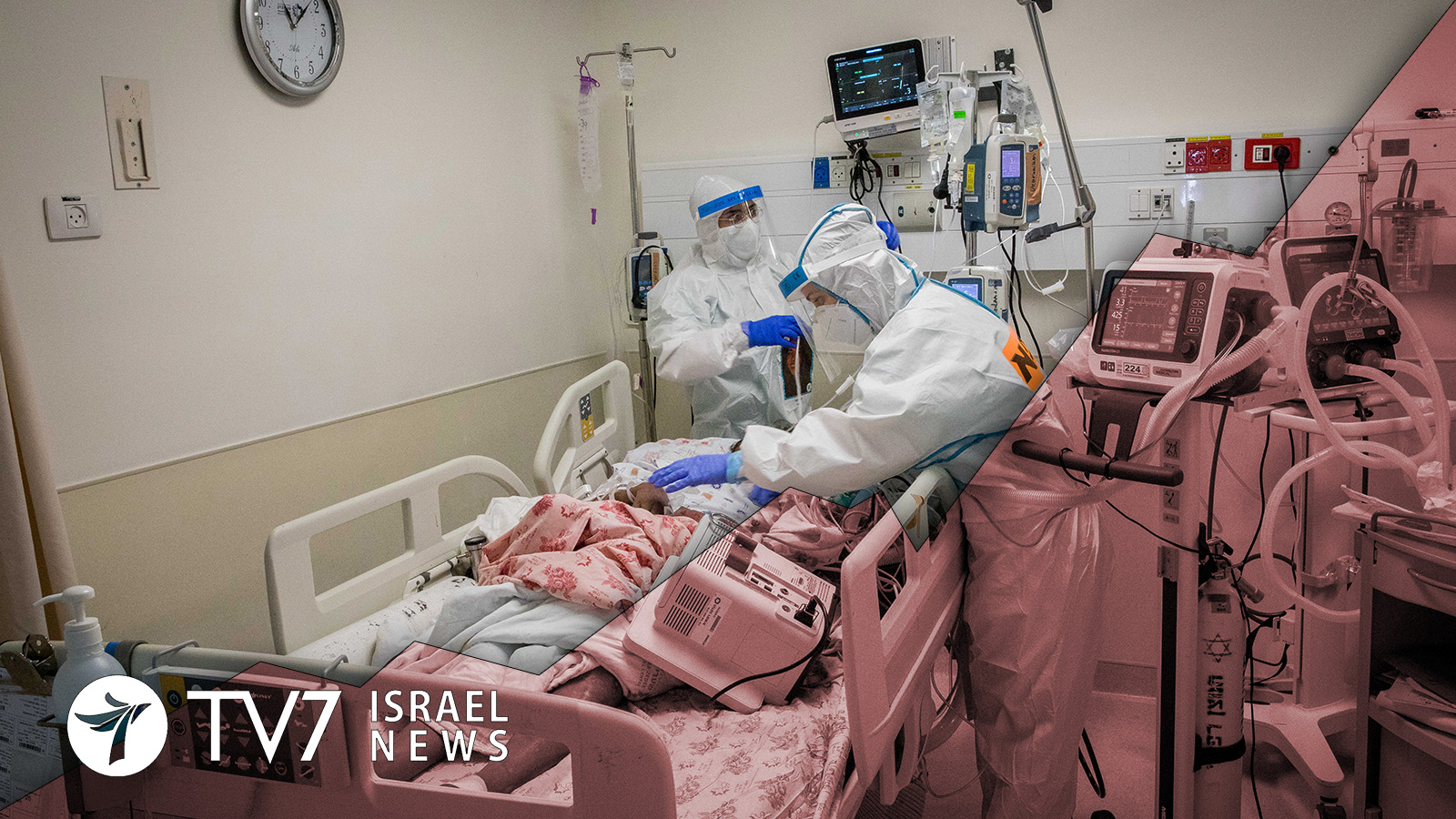The Israeli Health Ministry reported today that 8,919 people tested positive for the coronavirus after the administration of a record-breaking number of 68,128 tests. The infection level in the country is now 13.6%.
There are currently 68,811 active cases, with 810 patients in critical condition.
The official death toll has risen to 1,571. The Israeli military released data yesterday revealing that the country has one of the worst daily virus fatalities per capita.
Israel also ranks among the world’s highest for the number of citizens who have been infected by the disease since its outbreak. The overall contamination percentage of 2.7% reflects 1 out of every 37 Israelis who caught the virus. Qatar has the highest rate, followed by Bahrain, Aruba and French Guiana.
The majority of the infected Israelis live in Jerusalem, followed by the cities of Bnei Brak, Ashdod, Tel Aviv, Modi’in Illit, Petah Tikva, Netanya, Be’er Sheva, Haifa, Rishon Lezion, Beit Shemesh, Holon, Elad, Beitar Illit and Ashkelon.
Israeli Health Ministry Director General Prof. Hezi Levi reported that 34% of all cases in the nation are in ultra-Orthodox Jewish areas.
The government reacted to the surge by extending the current ongoing national lockdown by 3 days. Heavy restrictions barring “non-essential” travel 1000 meters from one’s home were initially set to end 11 October and will now remain in effect until 14 October.
New emergency regulations forbid travel over one kilometer (0.6 miles) from citizens’ homes to attend protests, and all outdoor gatherings have been restricted to a maximum of 20 people.
During the latest meeting of the Coronavirus Cabinet of Ministers, Israeli Prime Minister Benjamin Netanyahu issued a dire warning that the current lockdown conditions may have to be extended for many months or possibly as long as a year to gain control of the deadly virus. He also instructed the Health Ministry to make all necessary preparations to be able to simultaneously treat as many as 5,000 seriously ill patients by November – which is more than six times higher than the estimated maximum capacity of the nation’s entire medical system.
The limitations will have a pronounced effect on observance of the upcoming Jewish festival of Sukkot, set to begin at sundown Friday evening and end on 9 October. This is the fourth major holiday in which Israelis have had to abide by strict limitations on observance, preceded by Passover, the Rosh HaShana New Year, and holiest day on the Hebrew calendar – the Yom Kippur Day of Atonement.
The week-long annual Sukkot holiday, known by Christians as the Feast of Tabernacles, is marked by the building of temporary outdoor huts, as commanded in the Biblical Book of Leviticus, Chapter 23. Families eat, pray and even sleep in the makeshift dwellings, called “Succot” in Hebrew. It is also a time when the faithful are obliged to make a pilgrimage to Jerusalem in fulfillment of the words of the Prophet Zachariah, who said “It shall come to pass that all nations would come up to Jerusalem to worship the King, the Lord of Hosts, and the keep the Feast of Tabernacles.”
Sadly, the tradition of hosting one’s family, friends and visitors to Israel has been severely curtailed by COVID-19. Police have been instructed to ramp up enforcement of the restrictions aimed at containing the pandemic, including a hefty ₪500 fine ($146) for those caught in sukkot belonging to others.
